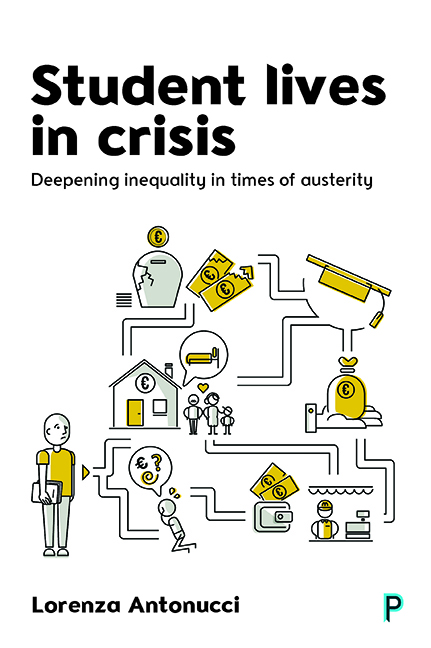Book contents
- Frontmatter
- Dedication
- Contents
- List of tables and figures
- List of acronyms
- Note on author
- Preface: A post-Brexit preface
- Acknowledgements
- Introduction: Young people’s lives at university in crisis
- Part 1 University for all? How higher education shapes inequality among young people
- Part 2 Exploring the inequality of university lives in England, Italy and Sweden
- Part 3 The ‘eternal transition’: young adults and semi-dependence in university
- Conclusion: Addressing growing inequality among young people in university
- Notes
- Annex
- Index
three - Beyond differences? Determinants of inequality among European young people in university
Published online by Cambridge University Press: 05 April 2022
- Frontmatter
- Dedication
- Contents
- List of tables and figures
- List of acronyms
- Note on author
- Preface: A post-Brexit preface
- Acknowledgements
- Introduction: Young people’s lives at university in crisis
- Part 1 University for all? How higher education shapes inequality among young people
- Part 2 Exploring the inequality of university lives in England, Italy and Sweden
- Part 3 The ‘eternal transition’: young adults and semi-dependence in university
- Conclusion: Addressing growing inequality among young people in university
- Notes
- Annex
- Index
Summary
[I often tell my students] there is only one good decision that you have to do in life: choosing your parents. Otherwise game over. (Stiglitz, 2015)
Stiglitz is correct in his view that having the right parents really matters for young people's future, but there is another fundamental decision for young people to take: choosing where to be born. As we have seen in the previous chapter, the structures available in England, Italy and Sweden are paradigmatic of the diversity in opportunities that young people enjoy across Europe. The two elements intersect: where young people come from, in terms of both their social class and their location, does have an impact on their experience of university. If we want to understand the changing dynamics of inequality among young people, and in particular among young people in university, we need to look at both. This chapter discusses the three sources of welfare introduced in Chapter 1 and their potential for stratifying young people's experiences in the three countries considered in this study.
Economists such as Stiglitz and Piketty, who have been increasingly interested in writing about inequality in the last few years, seem to neglect the profound role of welfare states in shaping people's opportunities. Welfare states are not just economic stabilisers; they represent the main field where class divisions can be reinforced or limited. When young people are mentioned in debates on reforming the welfare state, it is often to refer to the issue of intergenerational inequality, that is, the importance of reforming (or better, reducing) the old systems of the welfare state in order to mobilise more resources for the younger generations. As a matter of fact, young people benefit from welfare state systems in a number of policies, such as housing, education, labour market policies and social security. Moreover, what they can and cannot access largely shapes their dependency on the other two forms of welfare: their protracted dependence on the family and their need to find their own resources by working while studying. The reconfiguration of the ‘welfare mixes’ across Europe represents the most evident factor of inequality among this generation of young people, and one that is constantly overlooked.
Inequality and welfare state intervention
Social policy academics have long studied the way welfare state interventions can increase or decrease inequalities among the population.
- Type
- Chapter
- Information
- Student Lives in CrisisDeepening Inequality in Times of Austerity, pp. 51 - 64Publisher: Bristol University PressPrint publication year: 2016



